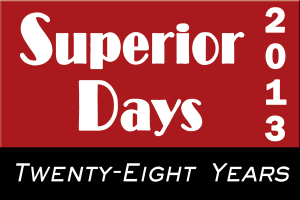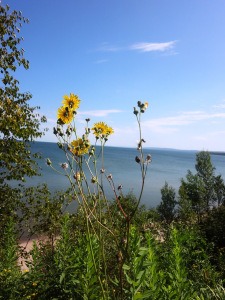Wisconsin Citizens Media Cooperative
Authentic News, Locally Grown
Home » Amidst Controversy, Superior Days Promotes Mining Legislation
Amidst Controversy, Superior Days Promotes Mining Legislation
February 14, 2013 by Barbara With and Rebecca Kemble
Conflict has erupted around the claims of consensus by Superior Days promoters
A long-standing and formerly non-partisan grassroots project that sends delegates from northern Wisconsin to Madison to lobby their representatives has included mining in the agenda this year, creating a violation of core principles of the 28-year-old group.
According to the Superior Days website, the yearly effort is meant to ensure that issues unique to the northern part of the state are heard at the capitol. The bedrock principle of the group that gives it integrity and clout is that issues taken up by the group are decided by a consensus of the members so they can be promoted in Madison with a united front.
This year, however, at the request of the Ashland Area Development Corporation, Superior Days has placed mining legislation on their agenda. Even though consensus was not reached, the organizers are insisting on maintaining it as one of the five legislative issues they will promote when they visit Madison next week.
The AADC is a private non-profit corporation whose mission is to improve the economic well-being of the Ashland area.
Frank Koehn, local resident and creator of Save The Water’s Edge insists that by leaving mining on the agenda, not only does Superior Days violate its consensus rule, it also means that the event’s sponsor, the University of Wisconsin Extension-Douglas County, cannot legally support it due to its partisan nature. Koehn tried to address a recent board meeting of AADC, but he was told their meetings are not public.
 “How does a private economic development council who conducts their business in board meetings which are not open to the public suggest they are speaking for the citizens of Northwest Wisconsin?” Koehn asked the Board in a letter requesting they remove mining from the agenda.
“How does a private economic development council who conducts their business in board meetings which are not open to the public suggest they are speaking for the citizens of Northwest Wisconsin?” Koehn asked the Board in a letter requesting they remove mining from the agenda.
He added, “In years past as a county board supervisor I participated in Superior Days. United voices were heard in Madison. This year may be different because AADC has chosen to minimize and marginalize the potential impacts of mining in the Bad River Watershed and homeland of the Bad River Ojibwe Nation.”
Douglas County Chamber of Commerce President Dave Minor claims that the mining issue has undergone the usual process. “Anybody who is opposed to it could have stepped forward anywhere along the line or been part of that process to say they didn’t want it, basically, you know, waiting until the end of process to say that this is something that we don’t want to see brought down.”
But Kelly Westlund, long-time Superior Days participant and Ashland City Council member, has proof that she has been trying to get mining off the agenda for several months. “Contrary to what Mr. Minor says, we asked for changes to the Superior Days mining issue as soon as they made the text available to the public,” she said. “They made some changes, but not enough to gain consensus. I’ve been asking them to remove the issue for over a month.”
Lake Superior near the mouth of the Bad River which would bear the brunt of toxic runoff from massive tailing piles from an open pit mine.
Westlund said she only received one response to her inquiries and protests. It was an email from Dave Minor that reveals how uninterested he is in consensus-building, compromise or even understanding. He simply wants to push the mining agenda. Minor wrote, “Kelly, after listening and reading the emails about pulling the mining issue from Superior Days, I have a question for you. Under what scenario would you support open pit mining in Wisconsin? Dave.”
Ashland County Board member Charles Ortman commented, “The fact that there is an argument about including the mining issue in Superior Days is prima facia proof that there is no consensus, and that it needs to be removed.” Ortman decries the mistrust this matter has engendered within the community: “Anything other than removing it suggests to observers some other agenda is at work contrary to the non-partisan history of Superior Days.”
Earlier this month, a resolution to support “responsible mining” failed to pass the muster of the Bayfield County Board. In an 11 – 1 vote, even the resolution’s author voted against it after hearing over two hours of testimony against the measure. Not a single person spoke on its behalf.
Last weekend a 10 hour legislative listening session was held in Ashland on the mining bill. Only four of the nearly 100 people who spoke were in favor of the bill. Doctors, nurses, scientists, farmers, small business owners and the mayors of three Ashland and Bayfield county cities all testified against the bill and the notion that the Penokee Hills can be mined responsibly.
Given the extensive public record of overwhelming public sentiment against the bill by area residents and elected officials, the insistence of Superior Days organizers to maintain the mining proposal on the agenda seems disingenuous at best. But no matter what their motivations, the effects of imposing the will of a few private parties onto the larger lobbying group could seriously damage the credibility and viability of the organization as a truly grassroots, non-partisan effort.


